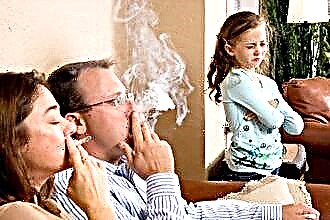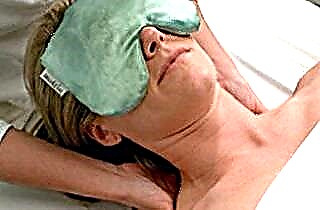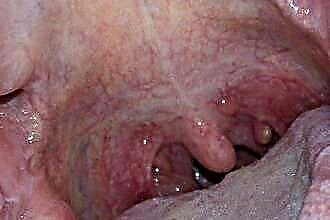Sinusitis is a serious disease that affects the paranasal sinuses and can lead to life-threatening complications if treated incorrectly or untimely. But even without complications, the disease brings a lot of unpleasant moments to a person: headaches, nasal congestion, abundant discharge, decreased ability to work and the quality of life in general. It is better to prevent any disease than to cure, therefore prevention of sinusitis at home is extremely important.
The urgency of the problem
 Most often, sinusitis develops with a decrease in ambient temperature, which is seasonal, or with situational hypothermia of the body. Experienced otolaryngologists know when the main influx of patients occurs: in autumn and spring, when there are noticeable fluctuations in air temperature, and a person may be dressed out of season, as well as in the second half of summer, when people return from vacations, where they are often overcooled due to swimming in reservoirs ... Under the influence of cold, the protective function of the body weakens, viruses and pathogenic bacteria enter the body and develop rapidly.
Most often, sinusitis develops with a decrease in ambient temperature, which is seasonal, or with situational hypothermia of the body. Experienced otolaryngologists know when the main influx of patients occurs: in autumn and spring, when there are noticeable fluctuations in air temperature, and a person may be dressed out of season, as well as in the second half of summer, when people return from vacations, where they are often overcooled due to swimming in reservoirs ... Under the influence of cold, the protective function of the body weakens, viruses and pathogenic bacteria enter the body and develop rapidly.
People with adenoids, deformities of the nasal septum, and allergies are more susceptible to sinusitis.
People in these categories often develop acute respiratory infections that turn into inflammation of the maxillary sinuses, so such patients need to know how to prevent sinusitis.
Sinusitis differs from rhinitis ordinary, it is an ailment that, due to the strategic location of the paranasal sinuses, can cause inflammation of the periosteum, upper respiratory tract, teeth, eyes and brain. To prevent this, sinusitis prevention should be carried out regularly.
Measures to prevent the development of sinusitis in children
According to researchers, ENT diseases are getting younger every year. Despite the fact that all people are susceptible to sinusitis, regardless of age, in recent decades, this ailment has been increasingly recorded in adolescents and babies. Diagnosis of inflammation of the maxillary cavities in children is difficult, since all symptoms indicate the common cold and the accompanying runny nose, and the baby is not yet able to clearly describe his well-being. In order for a child to avoid sinusitis, you need to pay attention to several practical tips that have been tested by time:
- Use a home humidifier. Dry air in the house can be the result of high temperatures in summer or the operation of heating systems during the cold season. Overdried mucous membrane functions worse: the cilia stick together from lack of moisture, and the drainage function is not performed properly. If you don't have a humidifier, damp sheets or more frequent showers can solve the problem. Inhalation is also practiced for several minutes with simple water vapor (over a saucepan or kettle) without any additives.
- To maintain normal hygiene of the sinuses and dilute their mucous contents, it is necessary to give children a lot of water or other liquids (juices, fruit drinks, fruit drinks, tea).
- Irrigate the nasal cavity regularly with saline solutions or special sprays. This will moisturize the nasal passages and help flush out any germs that enter the air stream.
 A child with a runny nose should avoid long-term outdoor exposure during peak periods of allergies (mid-spring and ragweed flowering time). To reduce the number of allergens, you need to keep the windows closed and use an air conditioner for air exchange. In this case, the filter of the device should be regularly cleaned so that it does not itself become a source of infection.
A child with a runny nose should avoid long-term outdoor exposure during peak periods of allergies (mid-spring and ragweed flowering time). To reduce the number of allergens, you need to keep the windows closed and use an air conditioner for air exchange. In this case, the filter of the device should be regularly cleaned so that it does not itself become a source of infection.- Children with chronic sinusitis require special parental supervision. Situations that can provoke the development of the acute stage of the disease should be avoided: diving in a pool with chlorinated water, passive smoking, swimming in insufficiently heated water bodies.
- If the baby has rhinitis, then it is better to give up air travel. When the pressure rises and falls associated with the climb and descent of the aircraft, the auditory (Eustachian) tube may become blocked. The baby will feel discomfort in the middle ear and sinuses during takeoff and landing. If it is not possible to cancel the flight, you should use nose drops before takeoff and spray with saline during the flight.
Sinusitis prevention for adults
Prevention of sinusitis in adults partly includes the methods that are used for children, but there are differences. Methods that can prevent the disease:
- Rinsing the nose with a solution of sea or table salt (0.9%) to remove mucous threads.
- You need to blow your nose correctly, without much effort. Blowing your nose gently will prevent secretions from flowing back into the cavities and blocking the connecting channels. Each nostril is blown out in turn to prevent snot from entering the Eustachian tubes and inner ear.
- With nasal edema of different etiology, it is necessary, as prescribed by a doctor, to take decongestants to prevent stagnation of mucus in the maxillary cavities.
- A compress will help improve blood circulation around the sinuses and liquefy internal secretions. A heated damp towel is placed on the face for 10 minutes, the procedure is repeated several times during the day.
- External stimuli can also adversely affect the condition of the epithelial tissues of the nose. This primarily concerns cigarette smoke and chemicals that emit volatile elements (paints, varnishes, cleaning agents). You should try to avoid places where substances that emit unpleasant pungent odors are used.
- With frequent rhinitis or exacerbations of sinusitis, it is worth taking an allergy test, perhaps this is the reason. Eliminating the allergen will help you feel better.
 To prevent sinusitis, prevention can be very diverse. For example, many experts advise to do preventive self-massage in the area of the sinus projection using mustard oil. This enhances blood flow to them and prevents secretion stagnation.
To prevent sinusitis, prevention can be very diverse. For example, many experts advise to do preventive self-massage in the area of the sinus projection using mustard oil. This enhances blood flow to them and prevents secretion stagnation.
The following exercise is also suggested. For two seconds, a person actively draws in air. This ventilates the sinuses by removing stagnant air from them. In case of swelling of the nasal passages, hyperventilation can be carried out 10-15 minutes after the use of vasoconstrictor drops (Galazolin, Nazivin, Rinazolin).
Strengthening general immunity
According to statistics, most often people with weakened immunity suffer from sinusitis. There are a number of measures that help to increase the body's defense response to external influences:
- Physical education is useful for everyone and always. Light exercise without serious stress, jogging in a park or in a stadium in good weather strengthens the body. You need to be careful about swimming, especially in a pool with chlorinated water, you need to prevent water from entering the nasal passages.
- Proper nutrition. All year round, the diet should be healthy and balanced, containing in the necessary proportions fats, carbohydrates and proteins. It is always good to eat berries, vegetables and fruits rich in fiber, macro- and microelements.
- Timely treatment of respiratory diseases, which are a source of infections and weaken the immune system. Don't forget about getting the flu vaccine to avoid getting sick or getting it in a milder form.
- Regular visits to the dentist.The lower wall of the maxillary cavity is also the upper wall of the oral cavity. Sometimes the anatomical structure of the skull is such that the molars of the upper teeth protrude into the maxillary sinuses. This situation leads to a rapid transition of infections from carious teeth to the mucous membrane of the chambers. Be sure to brush your teeth, rinse your mouth after eating, and sanitize your mouth.
- Taking vitamin complexes with trace elements, immunomodulators, hardening.
- Maintaining a balance of time for work and rest, full sleep for at least 8 hours a day.
Particular attention should be paid to the anatomical defects of the nasal cavity. The presence of polyps, curvature of the septum, tissue growth impair nasal breathing. Surgical removal of defects will allow the free passage of air to resume and improve local immunity.
Folk remedies for preventing sinusitis
 In folk medicine, special attention was paid to strengthening the body to prevent ENT diseases in general and inflammation of the paranasal sinuses in particular. Simple and inexpensive methods that can be easily applied at home are very popular:
In folk medicine, special attention was paid to strengthening the body to prevent ENT diseases in general and inflammation of the paranasal sinuses in particular. Simple and inexpensive methods that can be easily applied at home are very popular:
- Natural bee honey is diluted with water in a 1: 1 ratio and buried in a nose previously cleaned of snot. Other natural ingredients are often added to this mixture, for example, viburnum juice. Honey inhalations are also helpful. The beekeeping product has a pronounced antibacterial effect when it comes into contact with mucous membranes.
- Soda inhalation has a strong anti-inflammatory and bactericidal effect. 4 teaspoons of baking soda are diluted in a liter of warm water, it is important not to use hot water, which can negate the benefits of using baking soda.
- Irrigation of the nose with the addition of 5-6 drops of tincture of eucalyptus, chamomile, yarrow, calendula or a collection of several medicinal herbs to hot water.
- Eating horseradish, onions and garlic containing phytoncides. They help cleanse the sinuses, strengthen the immune system and destroy pathogens. To release the greatest amount of phytoncides, these products are ground into a gruel, after which their vapors are inhaled through the nose.
- Inhalation with dry menthol dissolved in boiling water, alcohol tincture of propolis, as well as over boiled potatoes.
Rinsing with warm water with the addition of a few drops of a weak solution of potassium permanganate or iodine. It is repeated several times during the day.

 A child with a runny nose should avoid long-term outdoor exposure during peak periods of allergies (mid-spring and ragweed flowering time). To reduce the number of allergens, you need to keep the windows closed and use an air conditioner for air exchange. In this case, the filter of the device should be regularly cleaned so that it does not itself become a source of infection.
A child with a runny nose should avoid long-term outdoor exposure during peak periods of allergies (mid-spring and ragweed flowering time). To reduce the number of allergens, you need to keep the windows closed and use an air conditioner for air exchange. In this case, the filter of the device should be regularly cleaned so that it does not itself become a source of infection.

